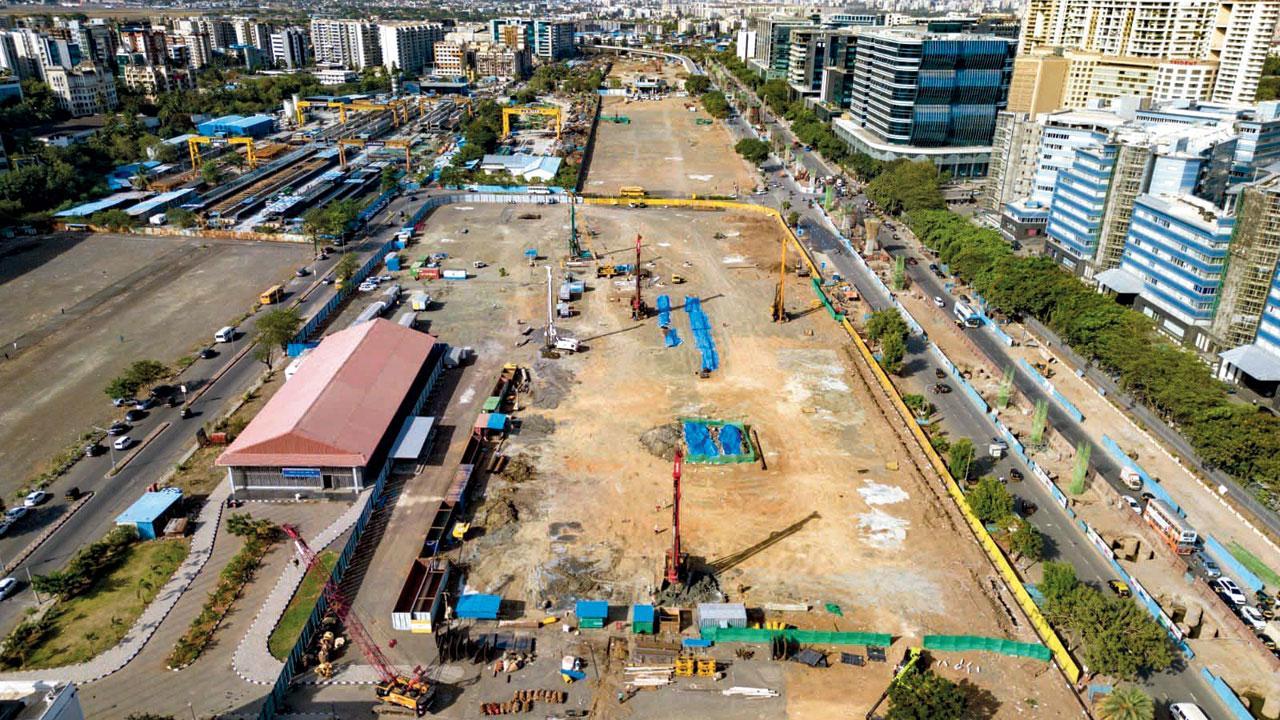NHSRCL signs contract with Afcons Infrastructure Ltd, kicking off work on India’s first such project, which is part of 21-km stretch

Bandra-Kurla Complex station site. Pic/Saurabh Raut
India's first 7-km-long undersea rail tunnel is set to be constructed in Thane Creek as the National High Speed Rail Corporation Limited (NHSRCL) signed a contract with Afcons Infrastructure Limited, commencing the work process.
ADVERTISEMENT
"The construction of a 21-km tunnel is one of the most challenging contracts of the Mumbai-Ahmedabad High-Speed Rail corridor. It includes building the country's first twin-track undersea rail tunnel, measuring 7 km, at Thane Creek. Three tunnel boring machines and the new Austrian tunnelling method will be utilised for this tunnel's construction," stated Rajendra Prasad, managing director of NHSRCL.
This 21-km-long tunnel will connect the underground station at Bandra-Kurla Complex to Shilphata in the state of Maharashtra. The approximately 7-km undersea tunnel at Thane Creek, situated in the inter-tidal zone, will be the first undersea rail tunnel in India. It will consist of a single tube accommodating twin tracks for both up and down trains. Additionally, 39 equipment rooms at 37 locations will be constructed near the tunnel as part of the project, according to a spokesperson. The depth of the tunnel will range from 25 to 65 metres from the ground level.
“Three tunnel boring machines will be employed to construct approximately 16 km of the tunnel, while the remaining 5 km will be constructed using the new Austrian tunnelling method (NATM). One of the largest tunnel boring machines in India will be utilised for this project, featuring a cutter head with a diameter of 13.1 metres. Typically, urban tunnels used in metro systems utilise cutter heads with diameters of 5-6 metres,” explained an official.
To facilitate the construction, three shafts will be created at BKC, Vikhroli, and Sawli at approximate depths of 36, 56, and 39 metres respectively. Another inclined shaft measuring 42 metres at Ghansoli and a tunnel portal at Shilphata will aid in constructing approximately 5 km of the tunnel using the NATM tunnelling method.
7 km
Length of the undersea rail tunnel
 Subscribe today by clicking the link and stay updated with the latest news!" Click here!
Subscribe today by clicking the link and stay updated with the latest news!" Click here!







